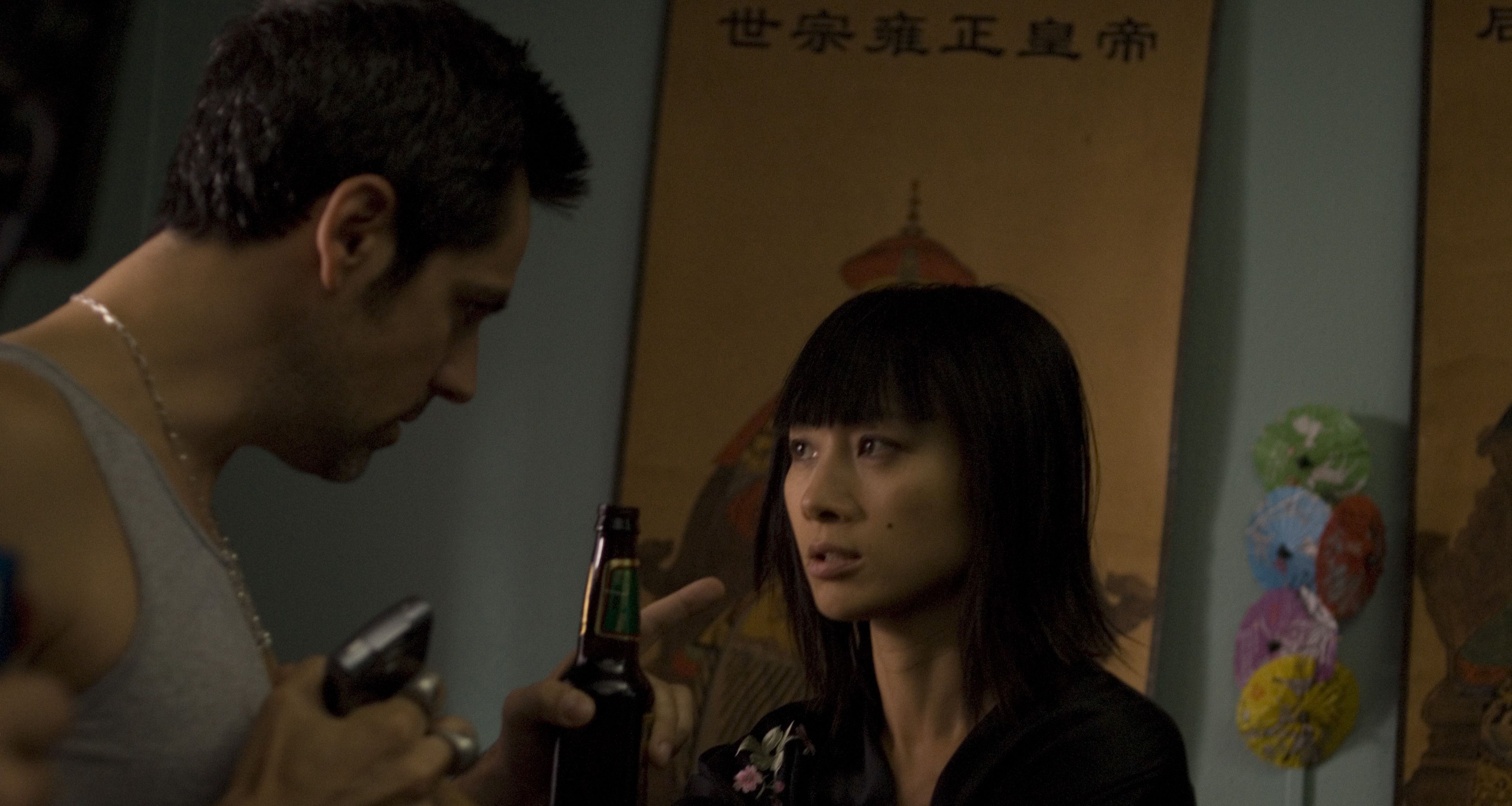By Chlotrudis Independent Film Society
Rating: 4 cats
Director: Wai-keuing Lau
Starring: Anthony Wong Chau-sang | Danying Feng | Liang Tian | Qi Shu | Ye Liu

Original language title: Mei li ren sheng
Country: china, hong_kong
Year: 2011
Running time: 122
IMDB: http://www.imdb.com/title/tt1934335/
Jason says: “You’ve got to sort of admire a movie like A BEAUTIFUL LIFE. It’s filled with characters that could easily be defined by how they are handicapped or burdensome, and yet it’s not a pity-baiting exercise. Well, not more than any other romantic drama; that’s their stock in trade. The point is, even when things start going bad, it’s more a film about people we like than people we feel sorry for, and that makes up for a few flaws.
“Li Peiru (Shu Qi) moved to Beijing from Hong Kong to start work as a real-estate broker a year ago; Fang Zhendong (Liu Ye), ‘Dong’ to his friends, has been a policeman there for fifteen years. They meet outside a karaoke bar, a plastered Peiru needing Dong’s help to get home, and since he’s a good guy, leaving a party early so that he can make sure his little brother Zhencong (Tran Liang) is okay, he helps her out, even when she’s looking for help cooking for her married boyfriend. She finds herself taken with Dong, and likes the withdrawn Zhencong and his mute would-be girlfriend Xiaowen (Fairy Feng), but the drinking is only part of her troubles, and they may consume her even though Dong is going to find himself in need of support himself.
“It’s a somewhat specialized skill, but Shu Qi plays drunk well (interestingly, she played a character I called ‘boozy’ in her last movie with director Andrew Lau Wai-keung). She’s sexy and funny at first, but always gives the feeling of someone careening out of control. It’s a tricky role, I imagine, as we get to know Peiru by her being demanding and taking advantage of Dong pretty shamelessly, but Shu pulls it off in a way that highlights her as being ambitious and energetic as much as selfish, and she is able to work the moments of Peiru being low or honestly charmed by the Fangs and Xiaowen to show another side of the character without making her feel schizoid.
“Dong’s a much more straightforward type, kind of square but earnest and likable. Liu Ye gives him an easygoing sort of charm, but isn’t afraid to be a little prickly. For all that Dong does the right thing, he’s human enough to be annoyed by Peiru at first and Liu puts just enough testiness into Dong’s dealings with his brother that we believe he’s been shouldering this responsibility for a while and isn’t perfectly sanguine about it on a day-to-day basis. Dong could have been a very dull character, and there are a few too-saintly moments he has a hard time bringing a spark to, but keeping him from being bland early makes the later scenes, when Dong is acting out in frustration and confusion, seem both of a piece with the initial characterization and a worrisome change.
“It’s the mark of a pretty good set of performances all around that we can see certain dynamics evolve without the need to comment on the changes: Dong clearly underestimates Zhencong and Xiaowen at the start of the movie, and it’s easy to see from Tran Liang’s performance why Dong would; Tran does a fine job of nailing a guy who has trouble interacting with the world while still giving Zhencong a personality of his own. He doesn’t speak much and Fairy Feng doesn’t speak at all as Xiaowen, but they communicate well enough with the audience well enough enough (and without exaggeration) that they come across as characters instead of gimmicks. Similarly, there’s no real outward sign that Anthony Wong Chau-sang’s Zhong (an older friend of Dong’s) is blind until about his third appearance, when he’s using a red cane; he just makes enough of an impression as an individual that it didn’t register that he wasn’t doing much acting with his eyes.
“Lau does a nice job of playing his cast against each other, especially toward the start, when the movie still has the potential to be something less complicated – if not a romantic comedy, then perhaps a simpler story of Li Peiru getting her life together. As the film goes on, it becomes more of a mixed bag: A brief sojourn in Hong Kong explains a lot about Peiru in economical fashion – her parents aren’t actually introduced as such but we recognize them and see what a mess the Lis’ family is immediately – while scenes in Beijing that try to advance Dong’s story as efficiently seem instead to be skipping over necessary transitions. It’s nicely shot, and the filmmakers use locations to great effect (Peiru’s various homes over the course of the movie are telling). That’s why bits of the end are somewhat aggravating – the movie goes in for not one, but two separate pieces of completely false tension in a hospital, and the end seems oddly both tidy and unexplained.
“There’s an earlier moment when A BEAUTIFUL LIFE could have ended and maybe should have; it would have cut out the worst of the melodrama and seemingly required relatively little work to make it the climax it seemed to be at the moment. Still, another twenty minutes or so with this group isn’t a bad thing, and the movie’s trouble letting go does not wind up working against all the parts which worked before. 4 cats
“Seen 20 May 2011 in AMC Fenway #12 (first-run)”
